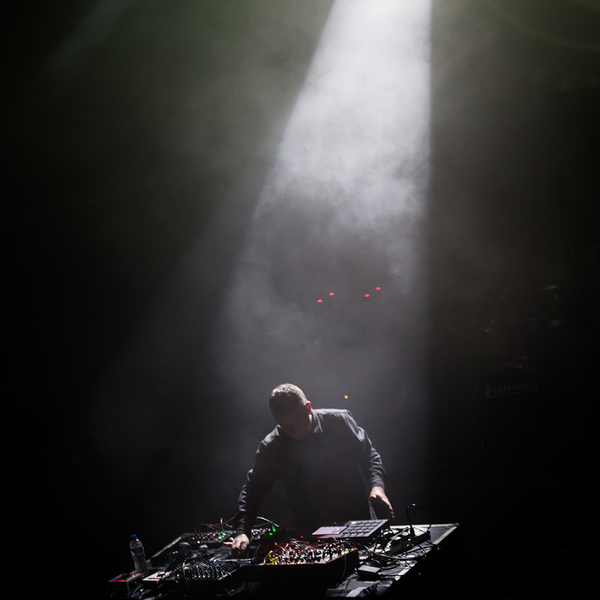How much does audience participation or reaction factor into your work?
I don’t see the piece that I’m creating in a vacuum. I’m not approaching it from some precious artist’s thing, like I’m doing this for myself and then if it accidentally gets out into the world, great. No, I’m creating it with the idea that it will be listened to, and it will be performed. It will be performed in public because, for me, that’s absolutely integral. The shared space is absolutely vital, and I love that there is no one type of space that feels magical. You can tap into that sense of awe and that sense of the sacred in any space. But it’s not guaranteed, either. That’s what I love and dread about performing. There are so many different factors converging on that moment and space, which can make it work or not.
You’re basically orchestrating chaos, right?
I’m leaving room for that as well, for chance and possibility. That’s super important. I like to prepare well for a concert, but I always leave space for chance. So there’s always room for improvisation. It’s not this methodically prepared linear experience. There’s always space for serendipitous or chaotic things to happen.
This year’s festival theme is about challenging the human-machine dichotomy, exploring concepts like “Machine Hallucinations” and nonhuman forms of consciousness, and finding alternatives to the conventional narrative of man versus machine. How do you personally or creatively respond to this notion of Living Machines?
Humans are machine-creating entities. It’s kind of what makes us human as we know it. I think the most pressing thing – since the Industrial Revolution – is ownership. The Industrial Revolution was a huge extractive process. It affected humanity profoundly but most people didn’t get a say in how it affected them. And it’s the same thing with these Large language models (LLMs). They don’t exist in a vacuum. Someone owns these LLMs, and the vast computational power that they’re running on. And regular people are not going to get a say in how that affects them. I can definitely tap into the awe and wonder of the possibility of it, but I think the reality that is shaping up just now is that it’s gonna create massive displacement. It’s going to make everything more mundane. I’m not even going to use the word AI because I don’t think that we’re there yet. It’s very sophisticated algorithms, but it’s not “intelligence” in any way that we can relate to. That science fiction idea of Intelligent Machine is very compelling and it’s very seductive, and that’s what is being sold to us. But it’s just a way of sucking up everything that we own – all of human experience, art and culture – and then selling it back to us in a mundane or diminished form. And this is happening on a vast scale with huge resources. It’s just part of the ongoing process of Capitalism, making everything shittier and shittier, and selling it back to us. This is the more interesting question for me. It’s not even interesting, just vital: that nothing exists in a vacuum, we’re all absolutely inside of capitalism and it will extract the maximum from us, and give us the least back. So until we look at that, it’s hard to talk about the possibilities of AI without acknowledging that this will absolutely happen.
Does this then create a greater sense of urgency to be human, to be creative?
That’s the contradiction, that we all live inside this. It’s important that we’re not crushed by our own atomized bubbles, that we create art, or do our human thing, whatever that is and that we fulfil it through relationships with other human beings, and hopefully we can create something from that context, rather than just being passive recipients.
What personally motivates you to make music?
It’s still that sense of awe and wonder. The idea of the serendipities or the chance, or out of nothing or my shared experience, I created something that I think is worthwhile, and that I want to share with other people. Plus it’s a compulsion, I feel like I don’t even have a choice.
Read the article about Drew McDowall’s new album “Lamina”
https://mailchi.mp/leftfieldpr/drewmcdowall1
Listen to Drew McDowall’s music:
https://drewmcdowall.bandcamp.com
Drew McDowall performs on Thursday 15 June 21:45h at Plein 1940. The Conflux Festival opening performances at V11 and Plein 1940, and the exhibitions at V2_, Roodkapje and UBIK are free of charge. For the rest of the program you’ll need tickets.
